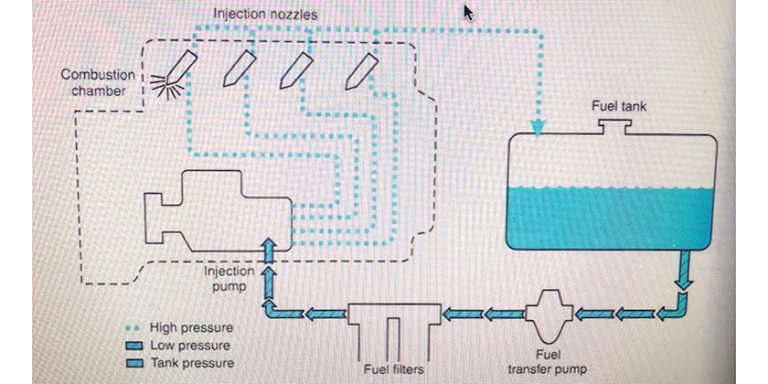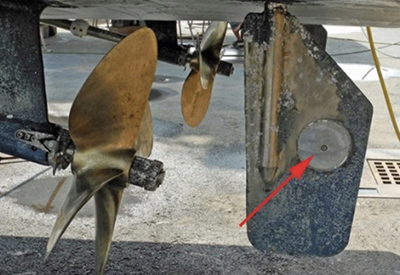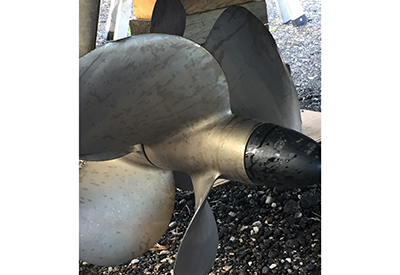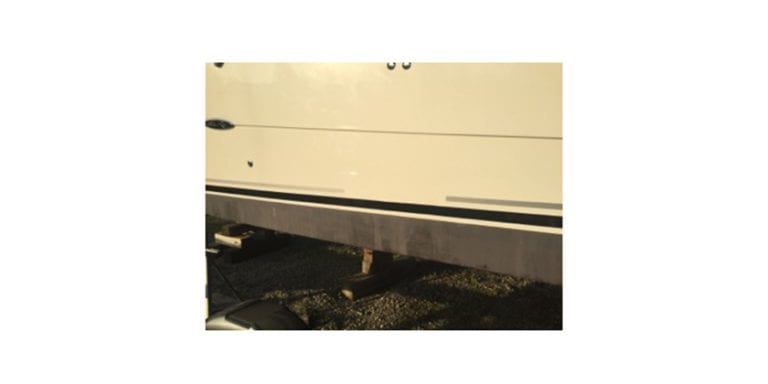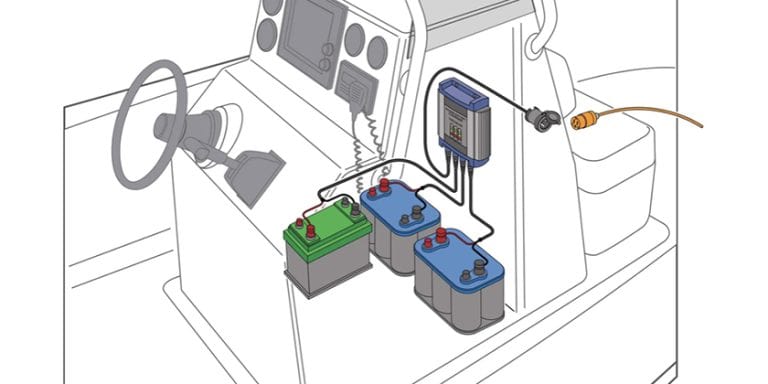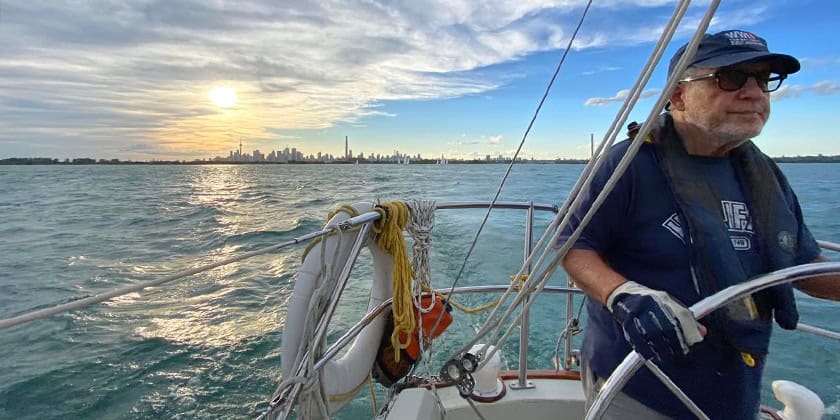Ask Andrew: The Last Hurrah
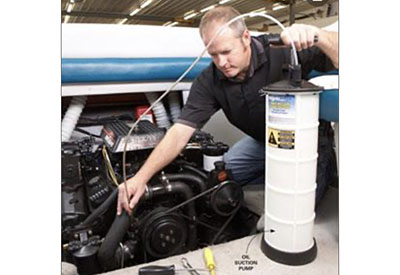
Sept 22, 2022
As Thanksgiving heads our way, it tends to be the ‘last hurrah’ on many fronts: the last long weekend before snowflakes, and (for many of us) the last time to enjoy the family boat for the season before other work/school/tasks/life take precedence.
Some marinas began hauling boats right after Labour Day and that continues for almost two months in many spots. This signals the ‘pre-haul-out’ work to begin.
There are several tasks that should be done prior to the boat being lifted out of the water that are advantageous to be done while the boat is still in – do them yourself or line up a pro. Here are a few ways to stay ahead of the game when considering winterizing tasks:
Great time for an oil change
1) An oil change. Always best done in the water. Why? The engine can be run, allowing the engine (and therefore the engine oil) to warm up to temperature. This makes the extraction process that much easier: The oil will be warm, thinner, and therefore you’ll be less prone to leaving excessive amounts of older oil behind. Most engine manufacturers recommend that the engine oil is changed every 100 hours, or once annually (whichever comes first). Fall is a great time to change the oil, allowing the fresh oil to be present in the spring (making spring start-ups that much easier).
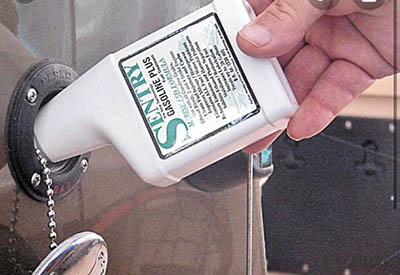 (Right) adding stabilizer to the fuel tank
(Right) adding stabilizer to the fuel tank
2) Topping up your fuel tank and stabilizing the fuel. Fuel tanks should be stored full for the winter: If empty air space is left in the fuel tank, changes in day/night temperatures during the storage season can create condensation. Condensation will then drip into the remaining fuel, watering it down. In cases where ethanol is present in the fuel, the water molecules will join with the ethanol and separate from the gasoline, taking with it some of the octane present in the gas. This separation causes fuel to go ‘bad’ – and there may not be enough octane left in the fuel to start the engine in the spring. Fill your tank and add a stabilizer. In any remaining time aboard between now and haul out, the stabilizer will make it’s way from the tank, through the fuel lines and filters to the engine, thereby stabilizing the entire system.
In the case of a diesel engine, a biocide is added to the fuel to prevent microbial growth during the storage period.
3) Drain/change water-separating fuel filters. This removes any sediment or particles that have been caught in the fuel filter, and removes any water that may have been separated by the filter, before reaching the engine. If left to freeze over the winter, the filter/cannister/bowl could crack…and even in the best case scenario could make the engine tough to start in the spring.
4) Check engine fluids: check power steering fluid, coolants, hydraulic fluid and transmission fluid. Top up where needed, and replace fluids as necessary. By taking this on now, it allows you to check for leaks and proper circulation with the engine running
5) Add a holding tank cleaner to the head. Allow the cleaner to ‘slosh around’ in the holding tank for a while before pumping out that last time before haul out.
6) Pump out your boat’s holding tank: You’re in for a treat in the spring if you forget that last pump out.
7) Empty the fridge: Take food and drinks off the boat – this prevents freezing damage, and critters from being tempted to take shelter aboard during the storage season.
8) Drain the fresh water and hot water tanks
9) Top up the batteries: Make sure that they are fully charged before the boat is stored – and this is often easiest done via shore power, or by running the engine or generator while in the water.
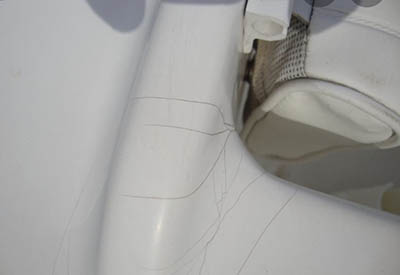 gelcoat cracks should be covered or sealed before storing for winter.
gelcoat cracks should be covered or sealed before storing for winter.
10) Patch up leaks, cracks, and damage. Even if it’s a temporary fix, it’s always a good idea to cover any damaged areas or fill any cracks or voids with a sealant to prevent water entering the damage and freezing (which will potentially expand and damage the area further).
11) Take her out for one last trip. And make it a great one.
 Andrew McDonald is the owner of Lakeside Marine Services – a boat repair/maintenance firm based in Toronto. Andrew has worked in the marine industry for 12 years and is a graduate of the Georgian College ‘Mechanical Techniques – Marine Engine Mechanic’ program.
Andrew McDonald is the owner of Lakeside Marine Services – a boat repair/maintenance firm based in Toronto. Andrew has worked in the marine industry for 12 years and is a graduate of the Georgian College ‘Mechanical Techniques – Marine Engine Mechanic’ program.

